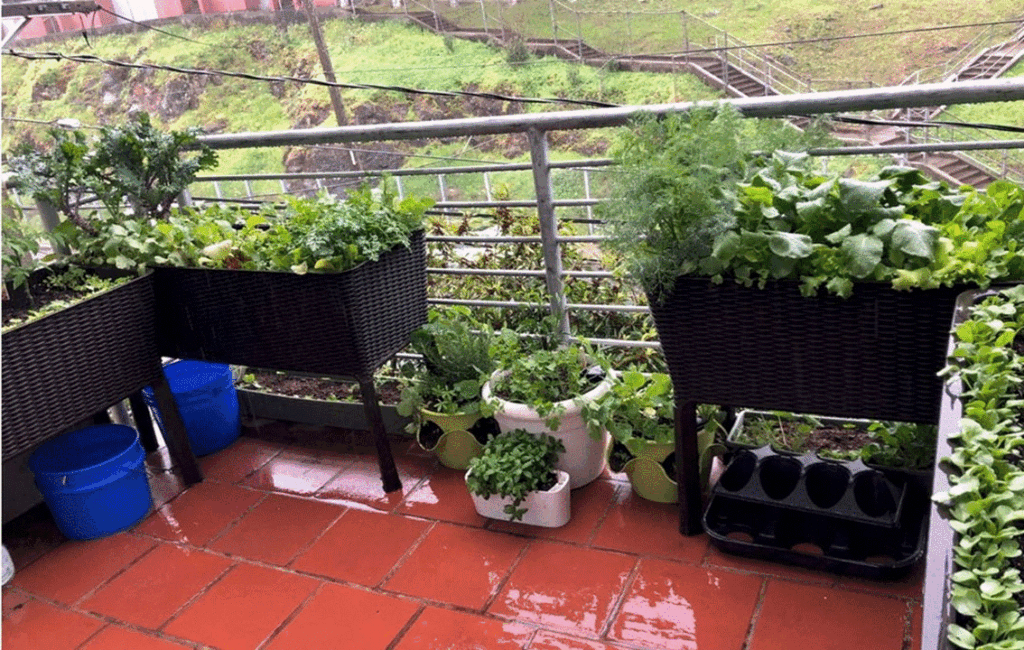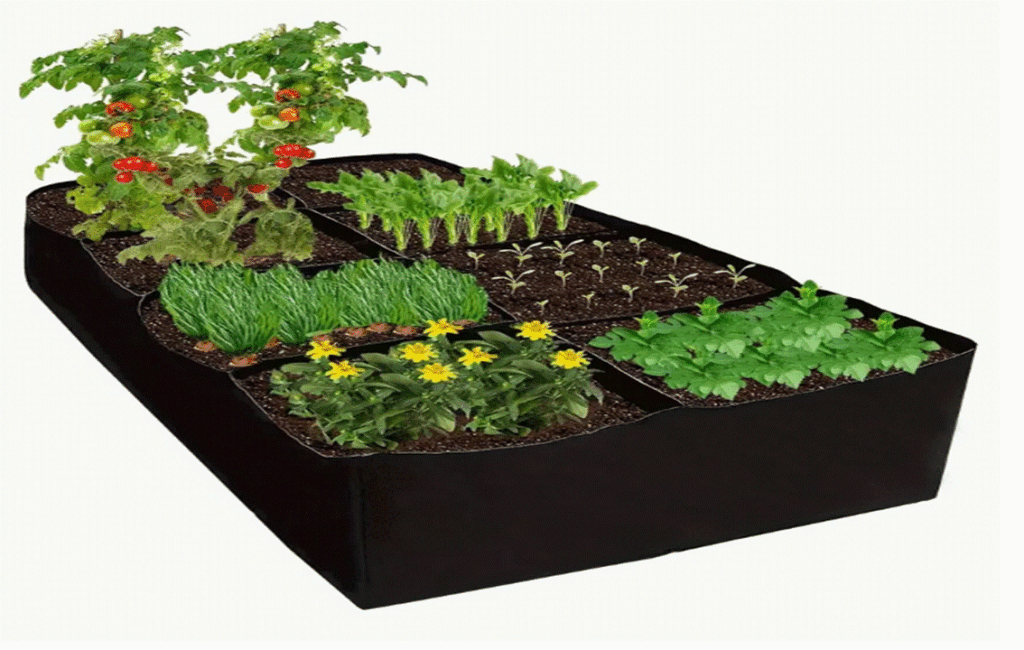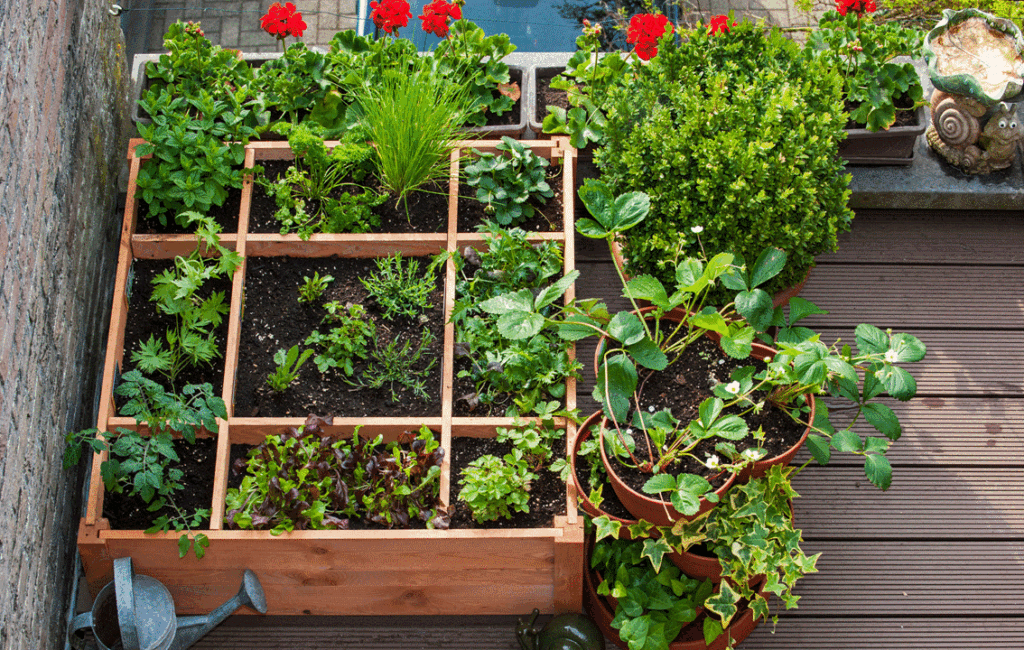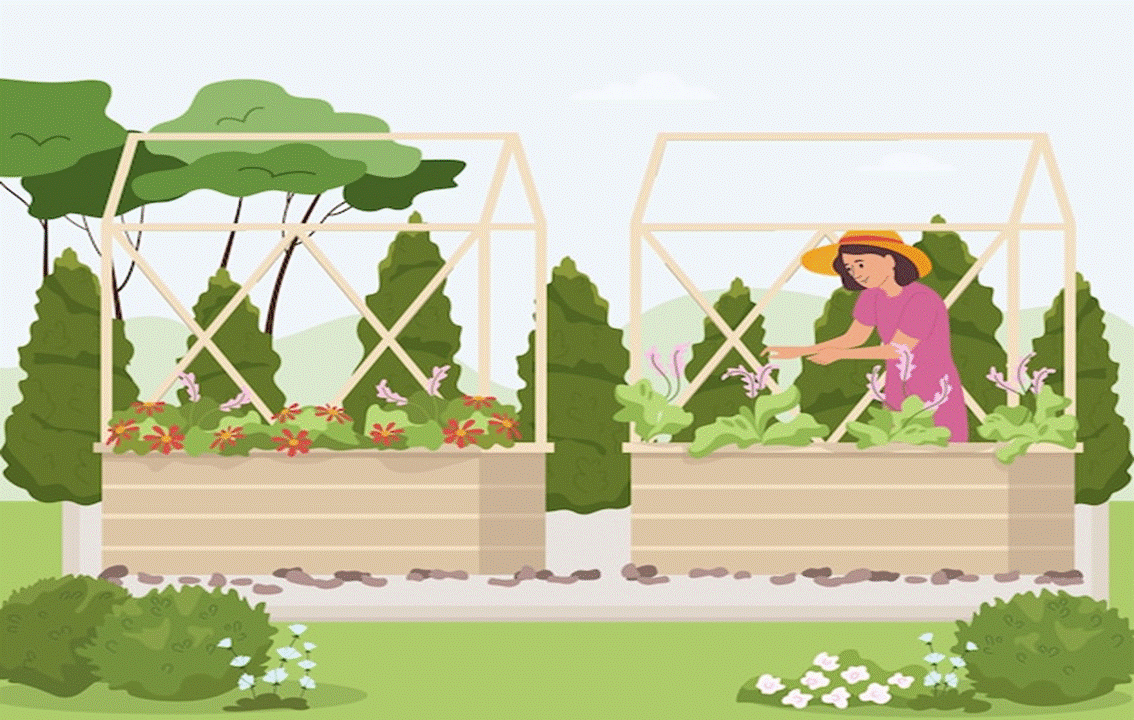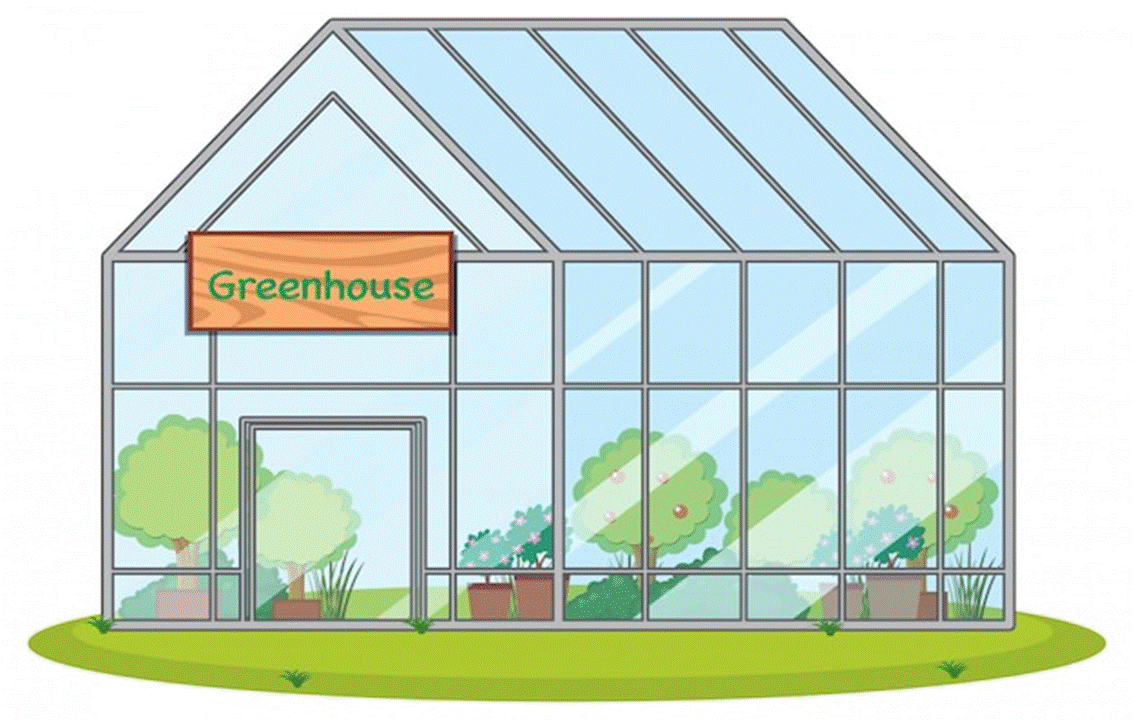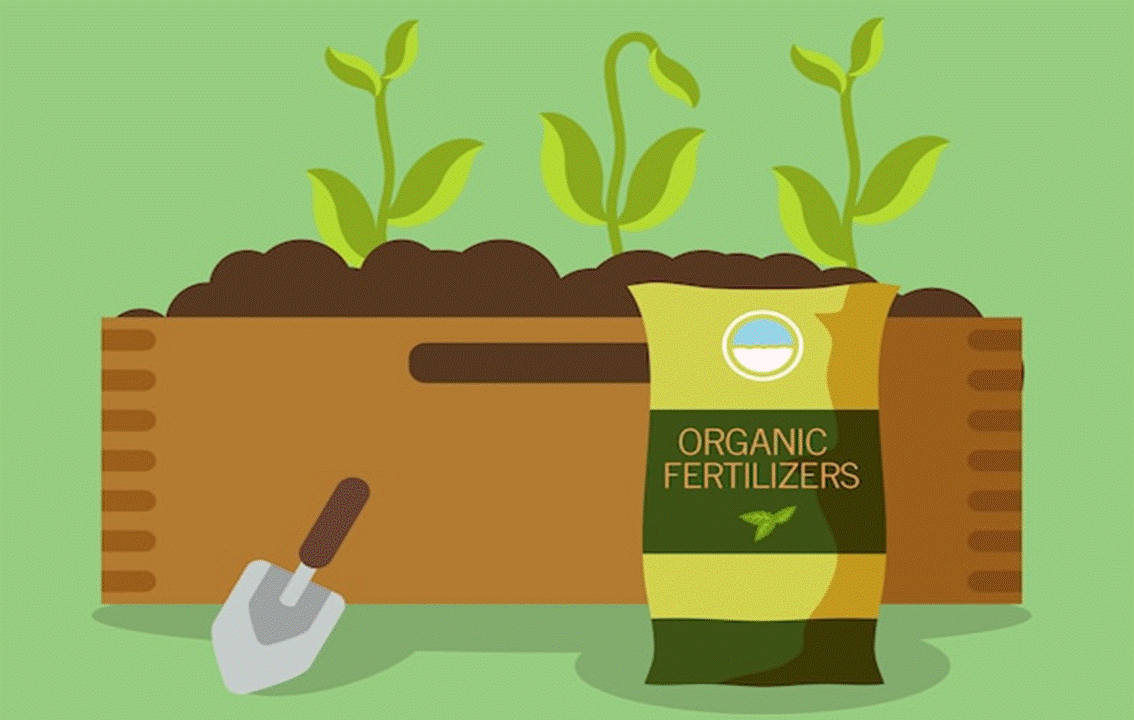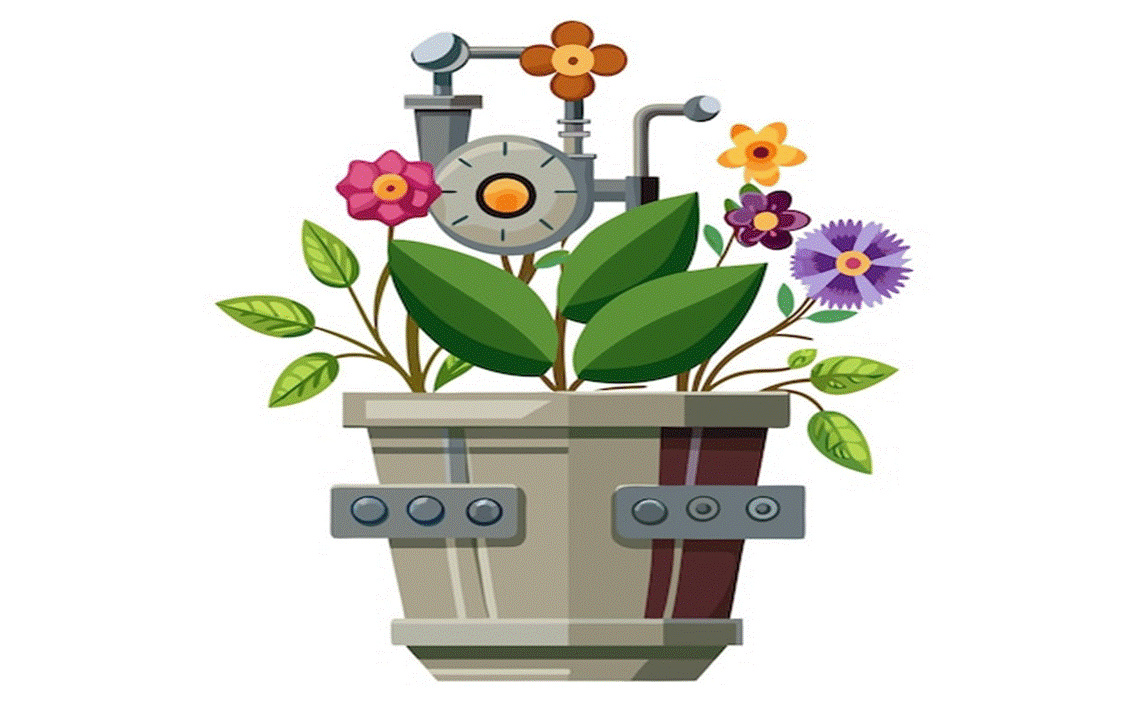BALCONY GARDENING
Creating a productive and attractive container garden on a balcony is relatively easier than growing crops in a garden in the conventional sense, but there are still many things to consider.
When using large pots or planters to grow herbs, fruits, and vegetables, on a balcony, the following factors should be considered
Factor One: Space & Accessibility
Consideration of the layout of a balcony should be given before any planting to avoid overcrowding. Most Plants should have ample room to grow and produce, so it may prove prudent to measure the balcony and then create a planting map for the available space. Consideration should also be given to the weight of the pots, soil, and water and if limited space is a factor, then, crops that grow well in confined spaces should be chosen. Incorporating wall trellises or shelving, and creating additional planting areas, should also be considered when space is limited. The positioning of pots or planters is also important and they should be positioned within easy reach for maintenance, harvesting, and care. Planting taller crops that grow vertically and may need staking or extra support, should be avoided if the height of the balcony is limited.
Factor Two: Potting Soil & Irrigation
Select appropriately sized pots for the crops to be grown. Larger pots tend to retain moisture much better than smaller pots and allow for healthier root systems. Implement a suitable irrigation schedule, especially for smaller pots that may dry out faster. All pots should have adequate drainage holes to prevent water logging, and a high-quality potting mix, designed for container gardening, with good compost for nutrients, should be used for this type of gardening.
Factor Three: Climate & Sunlight
Be prepared to protect plants from extreme weather, such as excessive heat, wind or frost. Consider the local climate and choose plants that can thrive in those conditions. Assess how much sunlight the balcony receives throughout the day and then choose crops that prefer these light conditions. Consider companion planting to maximize space, promote growth, and deter pests.
